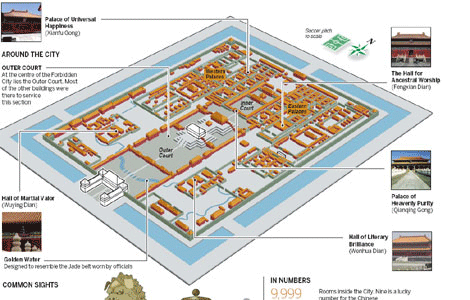Technology
200 fear battery plant poisoning
Updated: 2011-07-06 13:47
By Wang Hongyi (China Daily)
SHANGHAI - At least 200 workers from a factory that produces batteries in Changzhou, Jiangsu province, have been sent to a local health department for further blood tests after an initial probe showed many had been exposed to lead poisoning.
Earlier this week, Changzhou Maternity and Child Care Hospital tested more than 100 of the workers from the Taiwan-invested HIM URA Battery Technology Co Ltd.
| ||||
The local authorities have now called for additional tests and the company's 200-plus workforce has been asked to attend the Changzhou Center for Disease Control and Prevention.
"The results from the maternity and child care hospital cannot be viewed as authoritative, so we are all waiting for the results of their new blood tests," said an official surnamed Jiang from the human resources department in Chunjiang township within Changzhou's Xinbei district.
Employees said they decided to go for the initial tests after a co-worker fell ill.
"We decided to go for the tests spontaneously because we had heard that the company might be moving elsewhere and because a colleague, a woman who was two-months pregnant, fainted at work," Yangtze Evening News quoted an employee as saying.
The worker said the woman had a blood test and was found to have high levels of lead in her system, triggering her co-workers to follow suit.
"The woman was immediately fired," he added.
The battery producer and four neighboring companies that use lead in their production processes have been closed pending an inspection by local supervision departments.
An official surnamed Chen from the Changzhou administration of work safety said the company was planning to relocate to Vietnam.
"This case also involves the issue of the compensation of workers for the relocation," Chen told China Daily. "Now, the local department for work safety is working with the local health and environmental departments and is investigating the issue."
Xu Yawei, vice-director of the Changzhou Xinbei Industrial Zone, said the company's failure to solve its compensation issues with its workforce was likely the main reason why the workers decided to have their blood tested for lead poisoning.
He said the local government and the managers of the industrial zone had called on the company to appropriately compensate its workers.
The results of the definitive blood tests will be released in three days.
Battery plants have often been in the news in connection with the poisoning of children from surrounding communities and for the contamination of workers.
In May, a group of 136 people, including many children, were found to have dangerously high levels of lead in their blood. The contaminated people lived near a battery plant in Guangdong province.
Li Sixiao contributed to this story.
E-paper

Unveiling hidden treasures
The Forbidden City, after the Great Wall, is the most recognized tourist site in China.
Short and sweet
Game for growth
Character reference
Specials

China at her fingertips
Veteran US-China relations expert says bilateral ties have withstood the test of time

The myth buster
An outsider's look at china's leaders is updated and expanded

China in vogue
How Country captured the fascination of the world's most powerful fashion player



